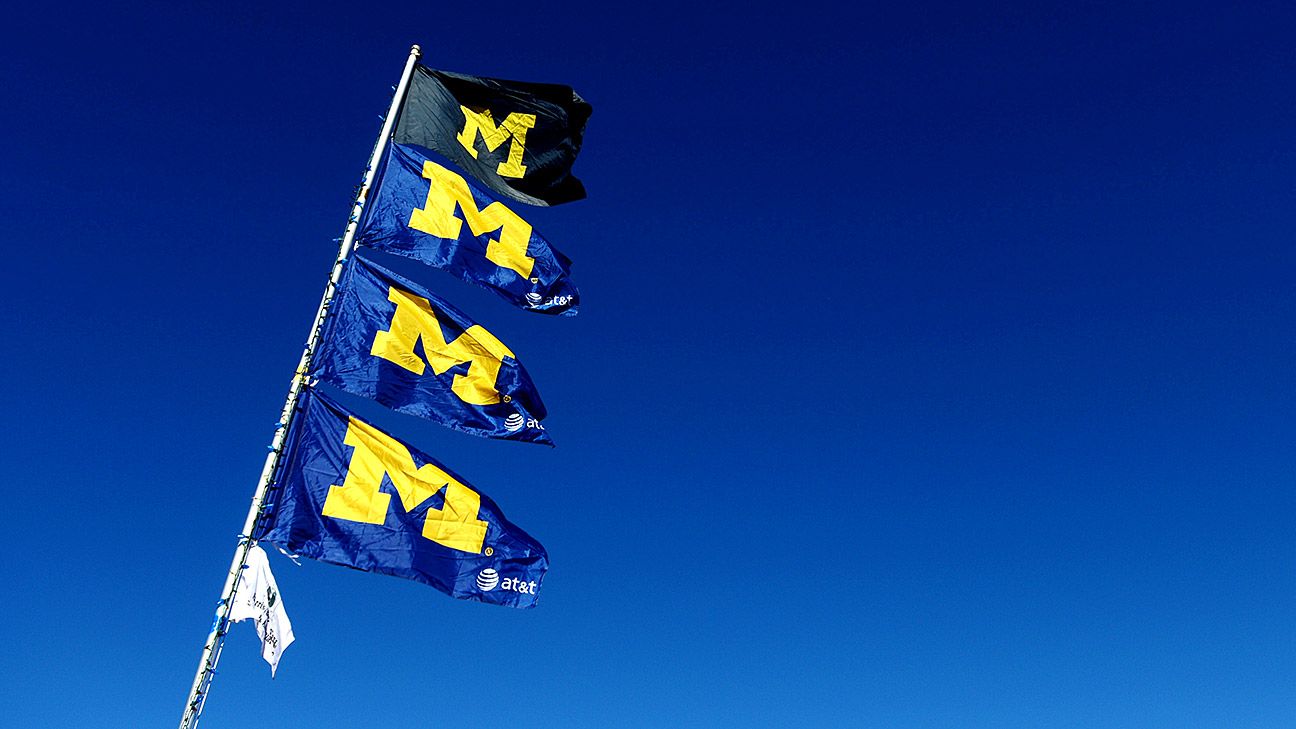ANN ARBOR, Michigan — Michigan President Mark Schlissel apologized on behalf of the university Thursday as another man came forward to publicly accuse a late physician of sexual abuse decades ago.
Gary Bailey, 72, told The Associated Press that Dr. Robert E. Anderson dropped his pants and asked him to fondle his genitals in a medical exam during Bailey’s senior year in 1968 or 1969. Bailey said he filled out a complaint form to the University Health Service within a month or so, writing that the behavior was “inappropriate,” but the school did not respond.
“I never heard anything about it ever again,” he said.
The university announced Wednesday that it had launched an investigation into Anderson’s conduct after five of his former patients alleged he sexually abused them during exams. Officials have acknowledged that some university employees were aware of accusations against the doctor prior to a 2018 complaint that led to a police investigation.
Schlissel opened a meeting of the school’s board of regents on Thursday by reading a prepared statement about Anderson.
“The patient-physician relationship involves a solemn commitment and trust,” he said. “The allegations are highly disturbing. On behalf of the university, I apologize to anyone who was harmed by Dr. Anderson.”
University spokesman Rick Fitzgerald said Thursday that, since the investigation was announced, 22 people have called a hotline to report on interactions with the onetime director of the University Health Service and team physician for the football team. Fitzgerald said he didn’t have detailed information about the individual callers or what they described. He said some of the callers reported having no issues with Anderson.
“It was a traumatic thing at the time,” Bailey told the AP of his own experience with Anderson. He said that, while the abuse has not “ruined my life or anything, it may have other people and that’s why I’m bringing my story to light.”
Bailey, who is gay, said Anderson “preyed a little bit on people who were gay … because he sort of thought that they wouldn’t say anything because, you know, people were pretty closeted back then.”
He said he told friends about the abuse decades ago.
Bailey, of Dowagiac, Michigan, first publicly spoke to The Detroit News.
Another man, Robert Julian Stone, told the AP on Wednesday that Anderson assaulted him during a medical appointment at the university’s health center in 1971. Stone said he alerted university officials last summer, inspired by the national #MeToo movement against sexual misconduct.
Bailey said he decided to come forward to corroborate Stone after Anderson’s family members told the News he never could have done such a thing.
“It just sort of irritated me. I mean, I’m sure no one thinks their father or mother can do anything like this. But it does happen, and my story is factual,” he said.
Fitzgerald said he could not provide more detail on investigators’ finding that some university employees were aware of accusations against the doctor prior to the 2018 complaint that led to a police investigation.
The university said that July 2018 complaint came from a former student athlete who wrote to athletic director Warde Manuel alleging abuse by Anderson during medical exams in the early 1970s.
Fitzgerald said he also could not answer questions about the scope of the police investigation, including whether investigators reviewed Anderson’s resignation as head of the health service in 1980 or his retirement in 2003.
The university police department referred the AP to the university’s Division of Public Safety and Security for questions about the investigation. A spokeswoman for the division did not immediately return an email with specific questions about the investigation.
The Washtenaw County Prosecuting Attorney’s office first received the police department’s report in late April or early May of 2019, said Steven Hiller, assistant chief prosecuting attorney.
A prosecutor concluded that summer that no criminal charges would be authorized because the primary suspect had died and none of the offenses were within Michigan’s six-year statute of limitations, Hiller said. Police sent a supplemental report in late summer or early fall and the office reviewed that information before coming to the same conclusion in the fall, he said.
Information from The Associated Press was used in this report.
